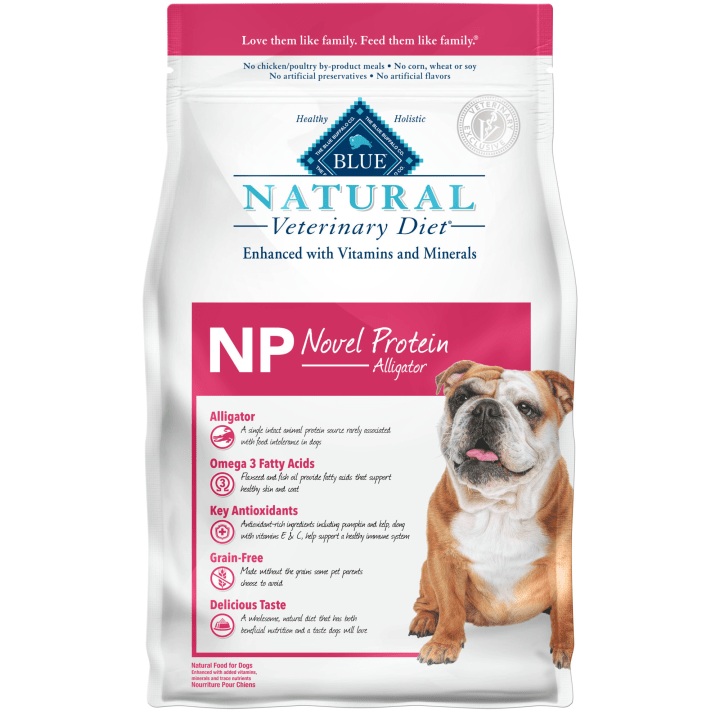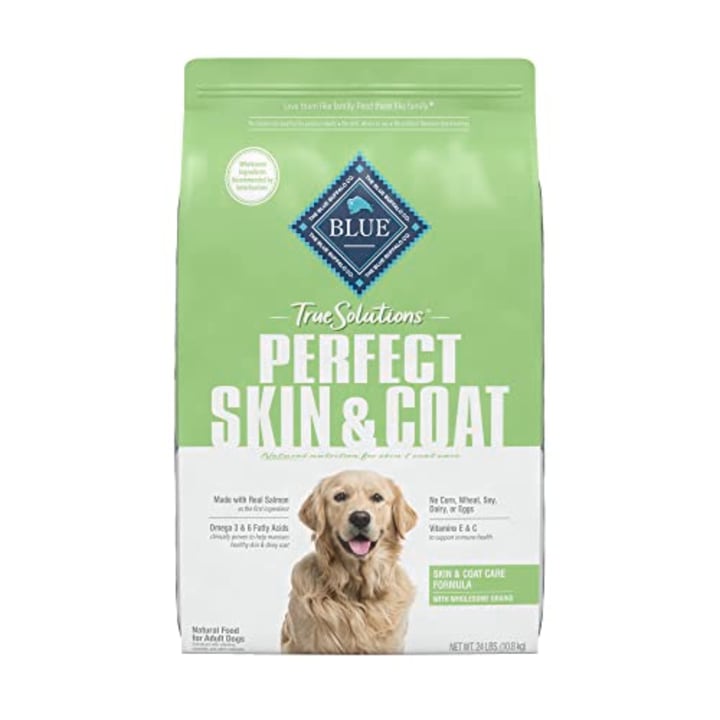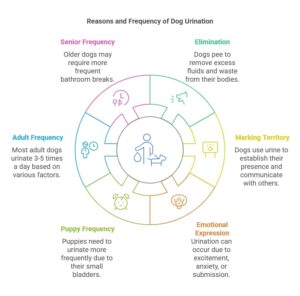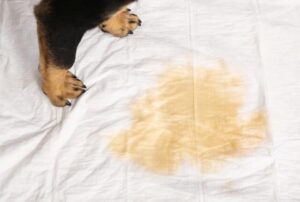The best hypoallergenic dog food for puppies includes brands like Royal Canin Veterinary Diet and Hill's Science Diet. These options are designed to minimize allergens while providing balanced nutrition.
Puppies with food sensitivities require special attention to their diet. Hypoallergenic dog food helps prevent allergic reactions and supports healthy growth. Choosing the right food is essential for your puppy's overall well-being. Many brands formulate their recipes to exclude common allergens like wheat, soy, and certain proteins.
These diets often include novel protein sources, such as fish or duck, to reduce the risk of allergies. Prioritizing a hypoallergenic diet can lead to healthier skin, a shinier coat, and improved digestion. Making informed choices ensures your puppy thrives while enjoying mealtime.
Table of Contents
ToggleIntroduction To Hypoallergenic Puppy Nutrition

Feeding puppies the right food is crucial. Hypoallergenic puppy food helps reduce allergic reactions. Many puppies suffer from food allergies. Choosing the right diet can enhance their health.
Hypoallergenic diets use special ingredients. These ingredients minimize allergic responses. They offer essential nutrients for growing puppies.
Identifying Food Allergies In Puppies
Recognizing food allergies in puppies is vital. Common signs include:
- Itchy skin or rashes
- Digestive issues, like diarrhea or vomiting
- Ear infections
- Constant licking of paws
If you notice these signs, consult a vet. A vet can recommend tests to identify specific allergies.
Benefits Of Hypoallergenic Food For Young Dogs
Choosing hypoallergenic food offers many benefits:
- Reduces Allergic Reactions: Fewer skin and stomach issues.
- Improves Skin Health: Less itching and inflammation.
- Enhances Digestive Health: Easier digestion and nutrient absorption.
- Boosts Overall Health: Supports growth and development.
Hypoallergenic food often contains:
| Ingredient | Benefit |
|---|---|
| Novel Proteins | Reduce allergic reactions |
| Limited Ingredients | Minimize potential allergens |
| Omega Fatty Acids | Support skin health |
Choosing the right hypoallergenic food promotes a healthier, happier puppy.
Key Ingredients In Hypoallergenic Dog Food
Choosing the right ingredients is crucial for hypoallergenic dog food. These ingredients help prevent allergies and promote healthy growth in puppies. Understanding the key components can guide pet owners in making informed choices.
Novel Proteins And Their Importance
Novel proteins are unique and less common in dog food. They include sources like:
- Rabbit
- Venison
- Fish
- Duck
Using novel proteins helps reduce allergic reactions. Many dogs are sensitive to standard proteins like beef or chicken. Novel proteins introduce new amino acids. This can improve skin health and digestion.
Role Of Carbohydrates And Fats
Carbohydrates provide energy and support digestion. They should come from safe sources like:
- Sweet potatoes
- Brown rice
- Peas
Healthy fats are vital for a puppy's development. They support brain health and coat shine. Look for fats from sources like:
- Fish oil
- Flaxseed oil
Balancing carbohydrates and fats ensures puppies grow strong and healthy.
| Ingredient Type | Examples | Benefits |
|---|---|---|
| Novel Proteins | Rabbit, Venison, Fish | Reduces allergies, improves digestion |
| Carbohydrates | Sweet Potatoes, Brown Rice | Provides energy, supports digestion |
| Healthy Fats | Fish Oil, Flaxseed Oil | Supports brain health, shiny coat |
Top Hypoallergenic Dog Food Brands
Choosing the right hypoallergenic dog food for your puppy is crucial. Many brands offer specially formulated options. These cater to puppies with food sensitivities. Here, we explore the leading brands in the market.
Reviewing Industry Leaders
Several brands stand out in hypoallergenic dog food. They focus on quality ingredients and nutritional balance. Here are some top contenders:
- Hill's Science Diet
- Offers formulas with limited ingredients.
- Contains high-quality protein sources.
Hill's Science Diet
- Royal Canin
- Specializes in breed-specific diets.
- Provides options for sensitive skin and stomach.
Royal Canin
- Blue Buffalo
- Uses real meat as the first ingredient.
- No artificial preservatives or fillers.
Blue Buffalo
Comparative Analysis Of Popular Formulas
Let’s compare some popular hypoallergenic formulas. This table highlights key features:
| Brand | Key Ingredients | Protein Source | Grain-Free |
|---|---|---|---|
| Hill's Science Diet | Chicken, Potato, Pea Protein | Chicken | No |
| Royal Canin | Rice, Chicken Fat, Hydrolyzed Protein | Hydrolyzed Chicken | No |
| Blue Buffalo | Deboned Chicken, Sweet Potatoes, Peas | Chicken | Yes |
Choosing the right brand is essential. Each brand offers unique benefits. Consider your puppy's specific needs. Consult your vet for guidance.
Home-cooked Vs. Commercial Hypoallergenic Diets
Choosing between home-cooked and commercial hypoallergenic diets for puppies is vital. Each option has unique benefits and drawbacks. Understanding both can help you make the best choice for your furry friend.
Pros And Cons Of Homemade Meals
Homemade meals can be beneficial, but they also have challenges. Here are some key points:
- Pros:
- Control over ingredients
- Customization for specific allergies
- Fresh, high-quality ingredients
- Cons:
- Time-consuming preparation
- Risk of nutritional imbalance
- Potential for contamination
Assessing Commercial Diet Benefits
Commercial hypoallergenic diets offer convenience and reliability. Here are the benefits:
| Benefit | Description |
|---|---|
| Convenience | Easy to store and serve |
| Formulated Nutrition | Scientifically balanced for growth |
| Consistency | Uniform quality in each batch |
| Variety | Different flavors and textures available |
Commercial diets meet strict safety standards. They often include hypoallergenic ingredients. This reduces the chance of allergic reactions.
Understanding Food Labels And Marketing
Understanding dog food labels is crucial for puppy owners. The right food can prevent allergies and promote health. Hypoallergenic dog food claims can be confusing. This section breaks down what to look for and how to interpret labels effectively.
Decoding Ingredient Lists
Ingredient lists provide essential information about the food. Here’s how to read them:
- First Ingredient: Look for real meat, like chicken or beef.
- Quality Ingredients: Choose whole foods over by-products.
- Grain-Free Options: Consider these for sensitive puppies.
- Specific Proteins: Novel proteins help identify allergens.
Check for these common ingredients:
| Ingredient | Type | Benefit |
|---|---|---|
| Chicken | Protein | Supports muscle growth |
| Sweet Potatoes | Carbohydrate | Provides energy |
| Salmon Oil | Fat | Promotes healthy skin |
Avoiding Misleading Claims
Marketing claims can be tricky. Here’s how to avoid misleading information:
- “Natural” Label: This doesn’t guarantee quality.
- “Hypoallergenic” Claims: Check for proven ingredients.
- “Grain-Free” Labels: Confirm if they suit your puppy.
- “Veterinarian Approved”: Verify the authenticity.
Focus on the ingredients rather than just the claims. Reliable brands offer transparency. They provide detailed information about their sourcing and processing.
:strip_icc()/oneplus_sensitive-c831eb0f80914383989f1ccf8b2bd528.jpeg)
Purina Pro Plan
Transitioning To Hypoallergenic Food
Switching your puppy to hypoallergenic food is vital for their health. This food helps with allergies and sensitivities. Proper transition ensures your puppy adapts well to new food. Follow the steps below for a smooth change.
Step-by-step Guide To Switching Diets
- Choose the Right Hypoallergenic Food: Select a product designed for puppies. Look for options with limited ingredients.
- Gradual Introduction: Start by mixing the new food with the current one. Use a ratio of 25% new food to 75% old food.
- Monitor Portion Sizes: Keep portions consistent. Puppies require adequate nutrition during the transition.
- Increase New Food Slowly: Every few days, increase the new food. Change the ratio to 50% new and 50% old after a week.
- Complete Transition: By the end of two weeks, your puppy should eat only the new food. Ensure they adjust well at each stage.
Monitoring Your Puppy’s Response
Keep an eye on your puppy during the transition. Watch for signs of improvement or issues. Look for these indicators:
- Changes in stool quality
- Energy levels
- Skin condition
- Behavior changes
If you notice any problems, consult your vet. They can provide guidance on dietary changes. Regular monitoring helps ensure your puppy’s health.
Consulting With Veterinarians
Choosing the right hypoallergenic dog food for puppies is crucial. Consulting with veterinarians provides important insights. They can guide you in selecting the best food. Understanding your puppy's specific needs is essential.
The Role Of Vet Guidance
Veterinarians play a key role in your puppy’s health. They assess the puppy’s overall condition. Their expertise helps identify potential food allergies. Here are some benefits of vet guidance:
- Customized dietary recommendations
- Identification of potential allergens
- Monitoring puppy's health progress
- Advice on transitioning to new food
Allergy Testing And Diet Recommendations
Allergy testing can pinpoint specific food sensitivities. Your vet may suggest a limited ingredient diet. This helps to narrow down allergens. Here are common testing methods:
| Testing Method | Description |
|---|---|
| Skin Test | Small samples are tested on the skin. |
| Blood Test | Blood samples identify specific allergens. |
| Elimination Diet | Limited ingredients are introduced gradually. |
Based on testing results, your vet will recommend suitable foods. Always follow the vet's advice for the best outcomes.

Blue Buffalo
Additional Care For Allergic Puppies
Taking care of puppies with allergies requires special attention. Proper nutrition is vital. Along with hypoallergenic dog food, other factors matter. Let's explore how to provide the best care for your allergic puppy.
Supplementing With Vitamins And Minerals
Allergic puppies may need extra nutrients. Hypoallergenic diets sometimes lack essential vitamins and minerals.
Consider these supplements:
- Omega-3 Fatty Acids: Supports skin health and reduces inflammation.
- Probiotics: Aids digestion and boosts the immune system.
- Vitamins A, C, and E: Help in skin repair and overall health.
Consult your vet before adding supplements. They can recommend the best options for your puppy.
Managing Environmental Allergens
Puppies can be sensitive to environmental allergens. These include dust, pollen, and mold.
Follow these tips to reduce exposure:
- Keep your home clean. Vacuum regularly to remove dust.
- Wash your puppy's bedding weekly. This reduces allergens.
- Avoid walking during high pollen times. Limit outdoor exposure.
- Use air purifiers in your home. They help filter allergens.
Monitor your puppy for signs of allergies. These may include itching, sneezing, or watery eyes.
Seek veterinary advice if symptoms persist. Early treatment can improve your puppy's quality of life.
Faqs On Hypoallergenic Dog Food For Puppies
Many puppy owners have questions about hypoallergenic dog food. Understanding this topic helps in making informed choices. Here are some common concerns and expert answers.
Addressing Common Concerns
- What is hypoallergenic dog food? Hypoallergenic dog food reduces allergens. It helps puppies with food sensitivities.
- How do I know if my puppy needs hypoallergenic food? Signs include itching, digestive issues, or skin problems. Consult a vet for advice.
- Can I make homemade hypoallergenic food? Yes, but ensure it meets nutritional needs. Consult a vet for recipes.
- How long should I feed my puppy hypoallergenic food? Usually, at least 8 to 12 weeks. Monitor improvement in symptoms.
Expert Answers To Reader Questions
| Question | Answer |
|---|---|
| What ingredients to avoid? | Avoid common allergens like wheat, soy, and dairy. |
| Is grain-free better? | Not always. Some grains are safe. Consult your vet. |
| Can I switch foods quickly? | No. Gradually transition to avoid stomach upset. |
| What brands are recommended? | Look for brands like Blue Buffalo and Hill's Science Diet. |
Choosing the right hypoallergenic dog food is essential. It ensures your puppy stays healthy and happy.
Conclusion And Final Thoughts
Choosing the best hypoallergenic dog food for puppies is crucial. Puppies have unique dietary needs. A proper diet supports their growth and health. Hypoallergenic options can help prevent allergies.
Summarizing Key Takeaways
- Hypoallergenic dog food reduces allergy risks.
- Look for limited ingredient formulas.
- Novel protein sources like duck or fish are beneficial.
- Check for grain-free options if needed.
- Consult a vet for the best choices.
Encouragement For Responsible Pet Parenting
Responsible pet parenting involves careful choices. Focus on nutrition to ensure a happy puppy. Regular vet visits help monitor health. Always read labels before buying food.
Provide fresh water daily. Engage in playtime for mental stimulation. Training your puppy builds a strong bond. Show love and patience throughout their growth.
By choosing the right food, you enhance your puppy's well-being. Remember, a healthy puppy grows into a healthy dog.

Blue Buffalo
Frequently Asked Questions About Best Hypoallergenic Dog Food for Puppies
What Is Hypoallergenic Dog Food For Puppies?
Hypoallergenic dog food is specially formulated to reduce allergic reactions in dogs. It contains limited ingredients and avoids common allergens like wheat and soy. This type of food is ideal for puppies with sensitivities, promoting healthier digestion and overall well-being.
How To Choose The Best Hypoallergenic Dog Food?
To select the best hypoallergenic dog food, first identify your puppy's specific allergies. Look for foods with novel proteins, like duck or salmon. Additionally, ensure the food has high-quality ingredients, is AAFCO-approved, and meets your puppy's nutritional needs for optimal growth and development.
Can Puppies Eat Adult Hypoallergenic Dog Food?
While adult hypoallergenic dog food may be suitable, it’s best to choose a formulation specifically designed for puppies. Puppy food contains higher levels of essential nutrients and calories needed for growth. Feeding them the right formula ensures they receive proper nutrition during this crucial developmental stage.
How Long Should Puppies Eat Hypoallergenic Food?
Puppies should eat hypoallergenic food until their allergies are managed or resolved. Consult your veterinarian for personalized recommendations, as some puppies may need this diet for several months. Regular monitoring will help determine when it’s safe to transition to a standard diet.
Conclusion
Choosing the right hypoallergenic dog food for your puppy is essential for their health and happiness. A balanced diet can prevent allergies and promote growth. Always consult your vet before making changes. With the right food, your puppy can thrive and enjoy a long, healthy life by your side.














